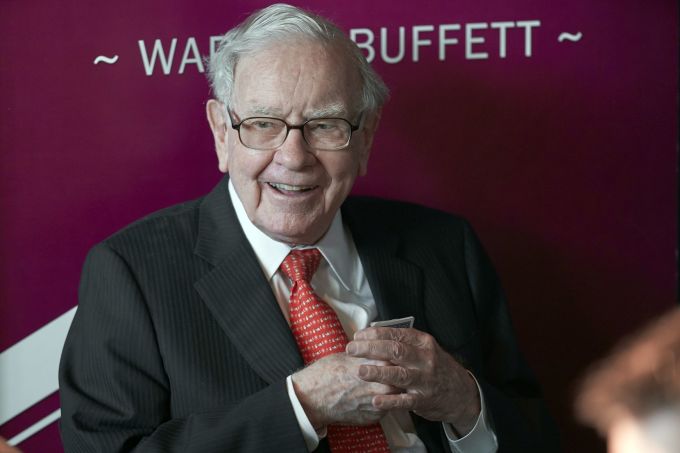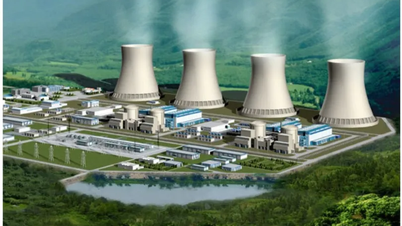Buffett has continued to invest in oil companies, despite falling prices, shunning fossil fuels and his company's heavy losses in the industry.
In 2008, Warren Buffett’s investment company, Berkshire Hathaway, bought a large stake in oil company ConocoPhillips. As the global recession hit, oil prices and ConocoPhillips’ stock price plummeted. Berkshire suffered a huge loss, experiencing its worst year since Buffett took over in the early 1960s.
"I was so wrong," Buffett, Berkshire chairman and CEO, told shareholders in 2009.
Berkshire then tried its hand at the industry again, investing in Exxon Mobil several times in the following years. But by 2014, it had to sell off its stake as oil prices recorded one of the steepest declines in history.
“We’re not going to buy oil stocks very often anymore,” Buffett said at the 2015 shareholders meeting.
The WSJ said that at that time, the investing legend seemed to have had enough of oil stocks. But last year, Occidental Petroleum stock caught Buffett's eye again.

Warren Buffett is currently Chairman and CEO of Berkshire Hathaway. Photo: AP
In March 2022, Occidental Petroleum CEO Vicki Hollub was driving to a college baseball game when her phone rang. Hollub answered. On the other end, Buffett said, “Hi Vicki, this is Warren. We just bought 10% of your company.” Occidental’s stock had been soaring, but no one knew why.
That call kicked off a buying spree for Berkshire, which added to its Occidental stake in the following months. Even as oil prices fell from their peaks, Berkshire continued to buy, in July, August, September 2022, and March 2023. It also increased its stake in Occidental rival Chevron in the first quarter of this year.
Berkshire is now the largest shareholder in both Occidental and Chevron, with energy stocks accounting for 14% of its portfolio at the end of 2022, the highest percentage since 2000.
Occidental shares have risen 5% since Berkshire disclosed its stake in March 2022. Chevron has fallen 1.8% since April 2022.
“The way they’re investing in the energy sector makes you think there’s a boom coming,” said Cole Smead, CEO of Smead Capital Management. Surprisingly, Buffett, one of the world’s most successful investors, would choose this time to buy oil stocks.
US West Texas Intermediate (WTI) crude is now trading around $69 a barrel, after soaring to $130 last year amid the conflict in Ukraine. Public attitudes toward fossil fuels have also changed in recent years, with companies increasingly under pressure to curb carbon emissions.
The most surprising thing is that energy stocks have been mostly down over the past few years. The boom-bust cycle, the wave of bankruptcies and concerns about the future of fossil fuels have left the S&P 500 energy sector far behind the broader market.
“There’s a big difference between what they care about and what other people are buying,” Smead said of Buffett and his lieutenants.
Why is Berkshire betting big on energy stocks? Berkshire Hathaway holds its annual shareholder meeting this weekend. Buffett and his associates will surely be asked why they bought big stakes in two of the largest oil companies in the Permian Basin (Texas, USA). They will also be asked about the future of the industry as the world moves to reduce its dependence on fossil fuels.
Can Buffett explain what's different this time?
Investors and analysts who have followed Buffett for years say the reason is that the world will still need crude oil, if not a lot of it, despite ambitious climate goals, which will allow companies like Occidental and Chevron to continue making money selling oil for years to come.
“It seems like their view is that the energy transition is going to take longer than expected,” said Bill Stone, chief investment officer at Glenview Trust. In 2022, Buffett said the US was not close to giving up crude oil completely.
“If we try to change, say in three years or five years, nobody knows what will happen. But for me, the probability of this happening is extremely low,” he said at last year’s shareholder meeting. “Let’s try to do without 11 million barrels of oil a day, and see what happens tomorrow.”
Berkshire upset many shareholders with its 2007 investment in PetroChina, the parent company of the Chinese oil company, which was accused of having ties to the Sudanese government during the 2003 war in Darfur. In 2007, Berkshire announced that it had sold its entire stake in the company, recording a $3.5 billion profit. Buffett insisted on Fox Business Network that his decisions were “based entirely on valuation.”
James Shanahan, an analyst at Edward Jones, said Berkshire's investments in the energy sector show that Buffett "still values traditional industries."
Investors who have watched Buffett and his longtime deputy Charlie Munger say the two billionaires are risk-averse, which makes Berkshire’s investments even more puzzling. The companies’ profits depend on oil prices, which fluctuate with unpredictable factors like economic growth, geopolitical shocks and the pace of drilling.
"Hollub said she doesn't know what oil prices will be next year. Nobody does," Buffett said at last year's shareholder meeting.
Mohnish Pabrai, founder of Pabrai Investments Funds, said the billionaire may believe that prices will fluctuate within a certain range, enough to make oil companies profitable. He had dinner with Buffett after winning a charity auction in 2008.
Many oil companies say they will still be profitable if oil prices fall far below current levels, thanks to technological advances. Occidental, for example, says it will still be profitable if prices fall to $40 a barrel.
In addition, both Occidental and Chevron dominate the Permian Basin, one of the world's most prolific oil fields. Asked in February whether Berkshire would hold onto its stakes in Occidental and Chevron for the long term, Munger said "it's probably a long-term investment."
Another reason is that Hollub seems to have earned Buffett’s trust. In the past, many oil companies have made the mistake of increasing production when oil prices were high. Hollub, on the other hand, has directed Occidental to pay down debt, pay dividends, and buy back shares years after the pandemic. This move is considered to be in Buffett’s favor.
“She’s basically like Buffett in that she’s always thinking about returning cash to shareholders,” Pabrai said.
Both Buffett and Munger built Berkshire to last. "The railroads will still be around 100 years from now," Pabrai said, referring to Berkshire's BNSF Railway subsidiary. "The energy business will be around for a long time," he added.
“They don’t chase trends, but always look for the simplest investments possible,” Pabrai concludes.
Ha Thu (according to WSJ)
Source link



![[Photo] Top players gather at the 2025 Nhan Dan Newspaper National Table Tennis Championship](https://vphoto.vietnam.vn/thumb/1200x675/vietnam/resource/IMAGE/2025/5/23/9ad5f6f4faf146b08335e5c446edb107)

![[Photo] Anh Hoang - Dinh Duc successfully defended the men's doubles championship of the National Table Tennis Championship of Nhan Dan Newspaper](https://vphoto.vietnam.vn/thumb/1200x675/vietnam/resource/IMAGE/2025/5/23/d6ab3bcac02c49928b38c729d795cac6)























































































Comment (0)